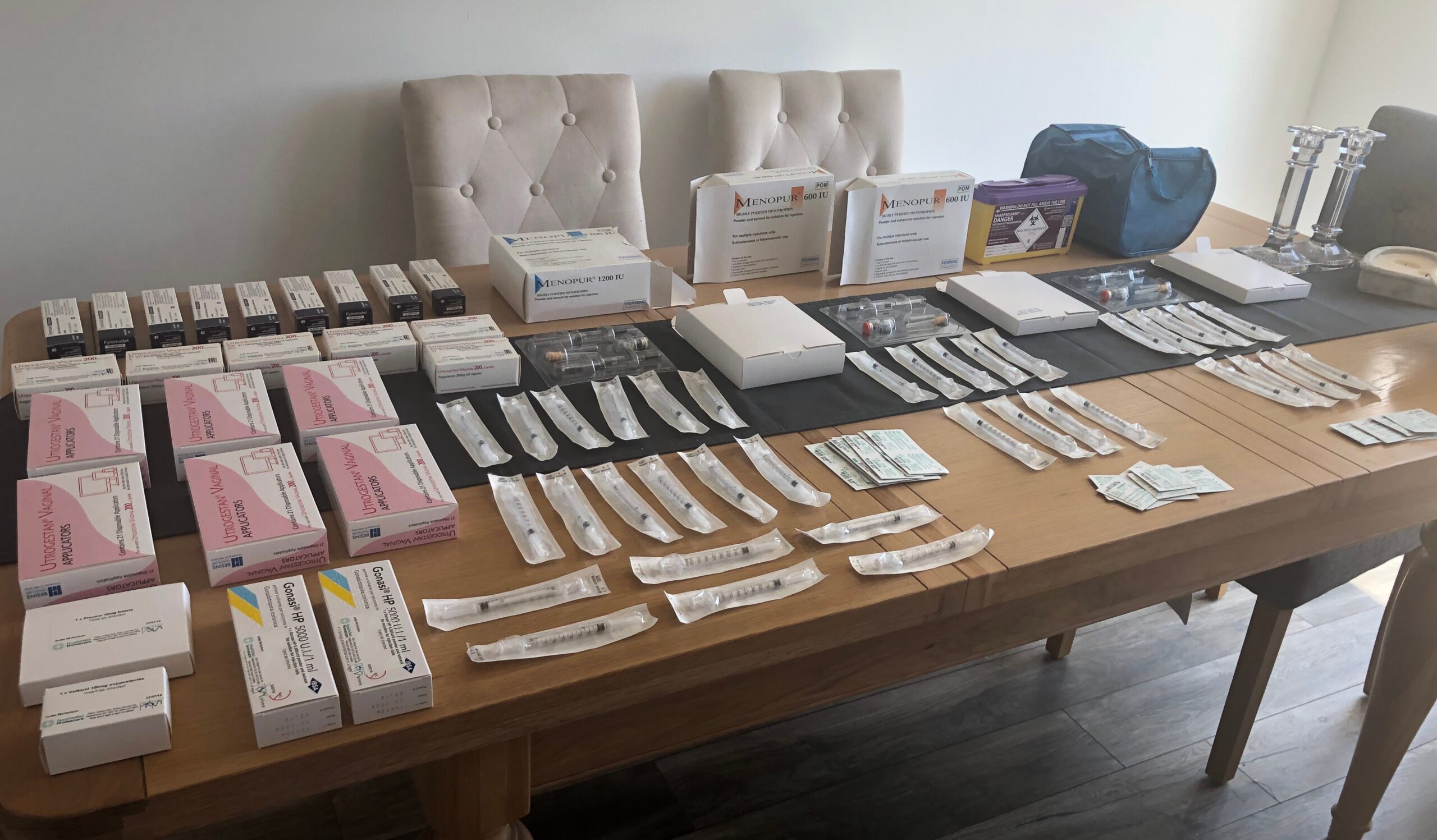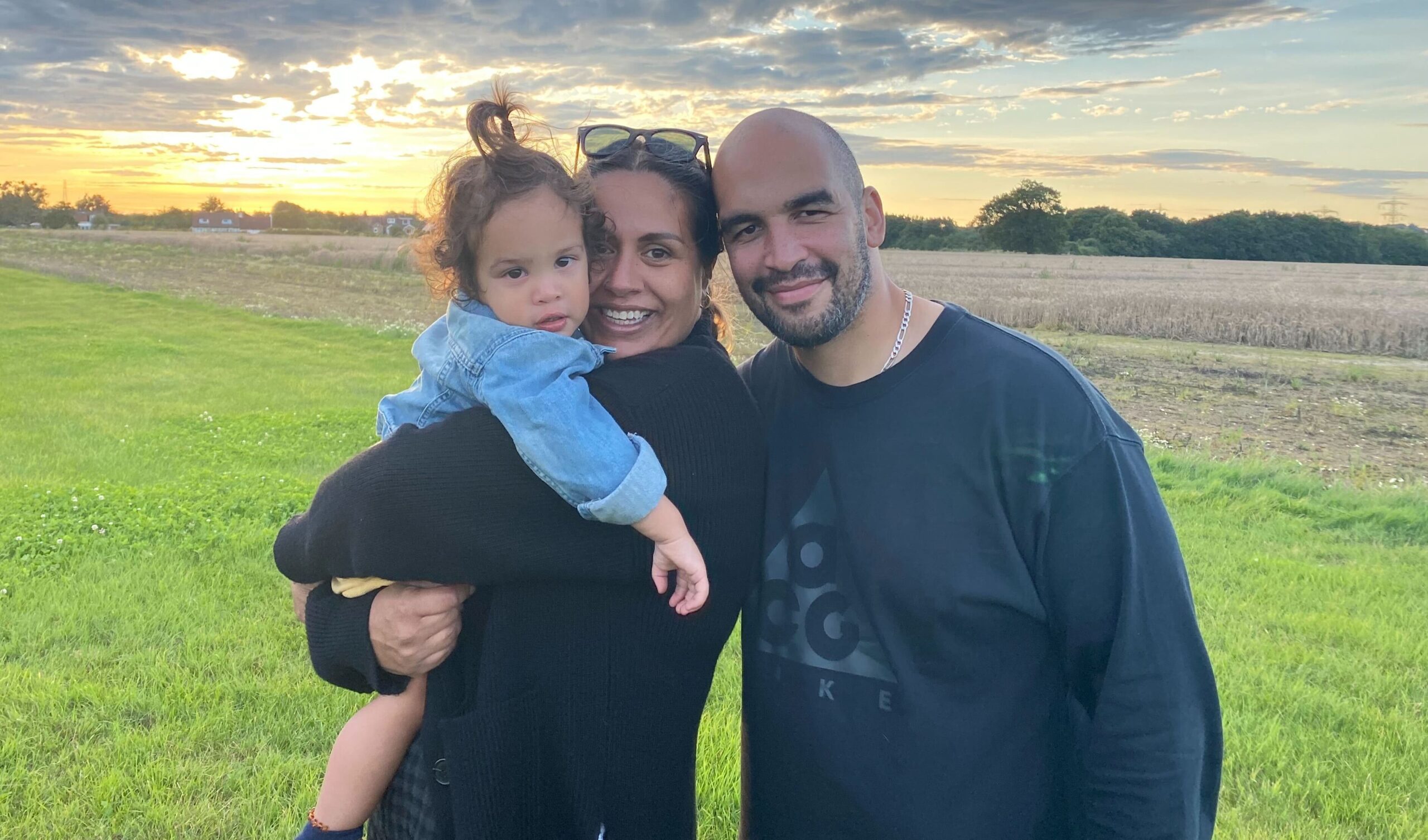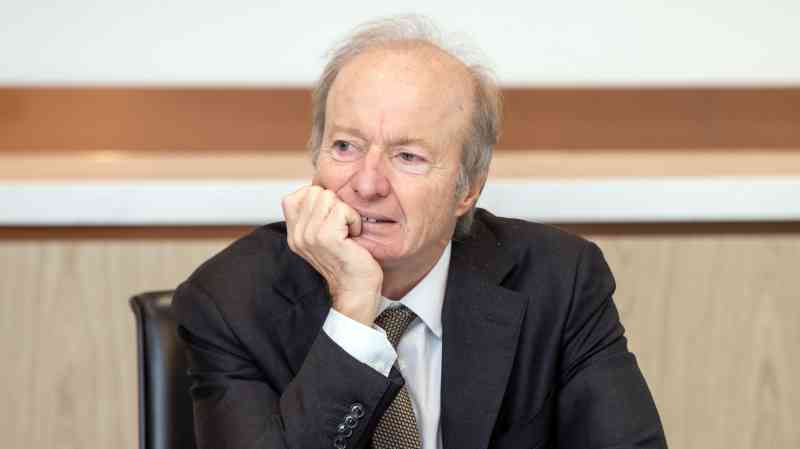IVF loans, remortgaging, raiding savings: the cost of trying for a baby
When Jodie and Steve Nicholson were told they would need to fund their own in-vitro fertilisation (IVF) they wasted no time in downsizing their home so they could afford a bill that would eventually balloon to £30,000.
They belong to a generation who are selling their homes, raiding their savings and taking on large debts to have a baby as the NHS funds fewer IVF treatments.
In 2012 40 per cent of IVF treatment cycles in the UK were paid for by the NHS, but by 2022 this had declined to 26 per cent as the health service tightened spending. The NHS paid for 20,555 of the roughly 80,450 cycles in 2022, according to the Human Fertilisation and Embryology Authority (HFEA), which regulates the industry.
Jodie, 34, a school administrator from Sheffield, was told by doctors in 2019 that despite multiple procedures to repair her fallopian tubes, IVF was the only way she could get pregnant. According to national guidelines for women under 40, the couple should have been entitled to three free rounds of treatment on the NHS, but they were disqualified from the funding because Steve has a daughter from a previous relationship.
“When we were told we would have to pay privately we sold the house to fund it. We bought it when we got married with enough bedrooms to grow our family so all our money was tied up in the property. We didn’t have the money to pay for IVF without selling it,” Jodie said.
The couple knew that treatment would run well into the thousands of pounds, but selling the property raised less than they had hoped. After legal and moving costs, downsizing released about £6,000 — well short of the £10,000 they spent on their first cycle. Family and friends chipped in to cover the shortfall.
In early 2019 the strain led Jodie to attempt suicide. “I was at rock bottom,” she said. “It was purely the fear of what we would do if we ran out of money.”
During an IVF cycle an egg is removed and fertilised in a laboratory, then returned to the womb. It can take between four to six weeks for one cycle.
The chances of a live birth from each embryo transferred during IVF is about 25 per cent and usually multiple cycles are needed. Patients who run out of cycles available on the NHS, or are denied treatment altogether, must contend with a private sector that has been criticised for poor transparency about fees and unexpected charges that can push bills thousands of pounds over advertised prices.
Funding cuts
The National Institute for Health and Care Excellence, an independent body that provides guidance, recommends that women under 40 are offered three cycles of IVF on the NHS if they have been trying for a baby for two years, or if tests show that IVF is the only way of getting pregnant. It recommends that women aged 40 to 42 are offered one cycle.
But the guidelines are not legally binding and in England each integrated care board (ICB) — the NHS organisations that plan health services locally — sets its own rules on eligibility, meaning what you get will depend on where you live.

One ICB might offer three cycles as standard, while another a few miles away might offer one. Eligibility and the number of cycles a woman is entitled to can vary depending on factors like their age, weight and whether they smoke. More than three quarters of ICBs in England do not fund IVF if either partner has any living children, according to analysis by Fertility Mapper, a review platform for fertility clinics. The average age women start IVF treatment is just over 35 years old, according to the HFEA, but in some areas the automatic age cut-off for NHS treatment is 34.
Jodie’s first round of IVF was successful and the couple’s daughter was born in 2020. Last year they attempted two more rounds using frozen embryos, at a cost of £5,000 each, but both resulted in a miscarriage. Jodie and Steve have spent £30,000 on IVF and fertility treatments and are paying £45 a month to store the remaining frozen embryos.
“I’m not ready to let those frozen embryos go yet. We don’t have the funds for another round of treatment and we need to weigh up the impact of the financial sacrifice on our family,” said Jodie, who has published a book detailing her journey called I(v)F Only.
Hidden costs
One IVF cycle can easily cost £5,000, and more with extras such as medication, blood tests and freezing surplus embryos. Drugs typically cost between £500 and £1,500 and, on average, blood tests, which are sometimes taken daily, cost £150 each.
The bills are even more difficult to manage on one income — and the number of single women funding IVF increased 44 per cent between 2019 and 2021.
Private costs vary greatly and the HFEA has warned that the same treatment could be two or three times more expensive from one clinic to another. A lack of transparency around fees makes it difficult for patients to compare prices and budget for treatment.
Sara Marshall-Page, the co-founder of the fertility website IVF Babble, said: “The cost of a basic round of IVF is between £4,000 to £8,000 and that doesn’t include tests or medicine. So a lack of finance can be as much a cause of infertility as medical reasons.
“Some clinics advertise add-ons that have little proven effectiveness just to make them look innovative, but all it does is put massive financial strain on patients.”
• ‘No one told us about the hidden £4,000 costs of IVF’
A standard course of IVF cost 50 per cent more than advertised at a quarter of private clinics analysed by Fertility Mapper last year. Initial quotes often do not include blood tests, hormones, pregnancy scans and embryo storage.
The HFEA warned that some clinics were selling extras that were not proven to increase the chance of pregnancy at a cost of hundreds, or even thousands, of pounds.
IVF loans
Patients are resorting to desperate measures to fund treatment. A survey of almost 200 patients by Fertility Network UK last year found that 14 per cent had sold personal belongings to afford private IVF, while 7 per cent had taken a bank loan and 4 per cent had remortgaged.
A decline in NHS funding has fuelled a rise in fertility financing, with large loans, package deals and buy now, pay later plans being offered in partnership with private clinics.
Clare Ettinghausen from the HFEA said: “For some patients, if they want to try for a baby, then loans or insurance may be the only option. We have no evidence that these ways of financing treatment have a detrimental impact on patient care, but it is absolutely essential that what’s offered is financially manageable.”
Some loans do not charge any interest until treatment results in a birth, such as that offered by Gaia, which charges between 14 and 18 per cent interest on repayments. Other companies, such as Access Fertility and Create Fertility, offer payment plans promising to charge 0 per cent interest if you spread the cost over 12 months. Some customers may even be eligible for a refund if their treatment is unsuccessful.
Similar to eligibility on the NHS, loans will have their own application criteria around age and the likelihood that treatment will be successful.
Samantha Deakin and her husband, Carl, had been together for eight years when an ectopic pregnancy revealed that she had severe endometriosis — a condition where tissue similar to the womb lining grows on the ovaries and fallopian tubes, which can cause infertility.

Samantha, 43, had one fallopian tube removed and after failing to get pregnant was told that IVF was an option. Because she had a teenage daughter she did not qualify for NHS funding and the couple were quoted £8,000 for one cycle of private IVF, which rose to about £10,000 once drugs were included.
“I thought the medication was included in the initial quote but that wasn’t the case. They transferred two blastocysts [which form a few days after a sperm fertilises an egg] into my womb but neither worked. I was becoming more and more depressed and began telling my husband he should leave me,” said Samantha, who lives in London.
• ‘I ate one meal a day so the NHS would give me fertility treatment’
The financial uncertainty of private IVF exacerbates an already gruelling treatment for patients. One four to six-week cycle typically involves many hormone-suppressing drugs, daily injections and invasive procedures.
After their first round of IVF Samantha and Carl saw an advert for Access Fertility in the clinic waiting room and bought a package of three cycles for £14,000.
“The costs were capped, so we knew they wouldn’t spiral out of control,” Samantha said. The couple spent almost £30,000in their attempts to have a baby, including numerous operations. Their son Harlow was born in May 2020.




Post Comment